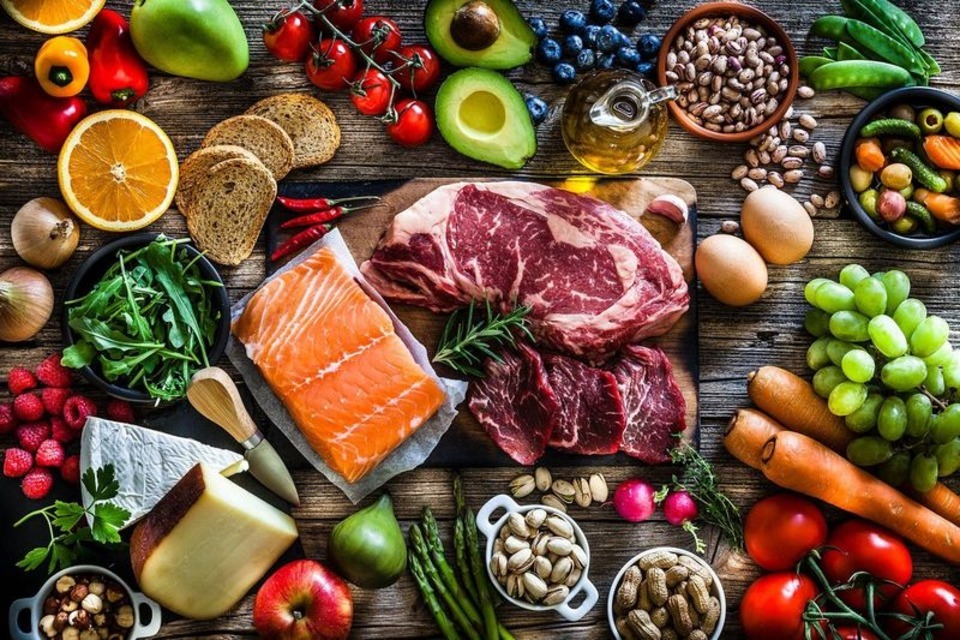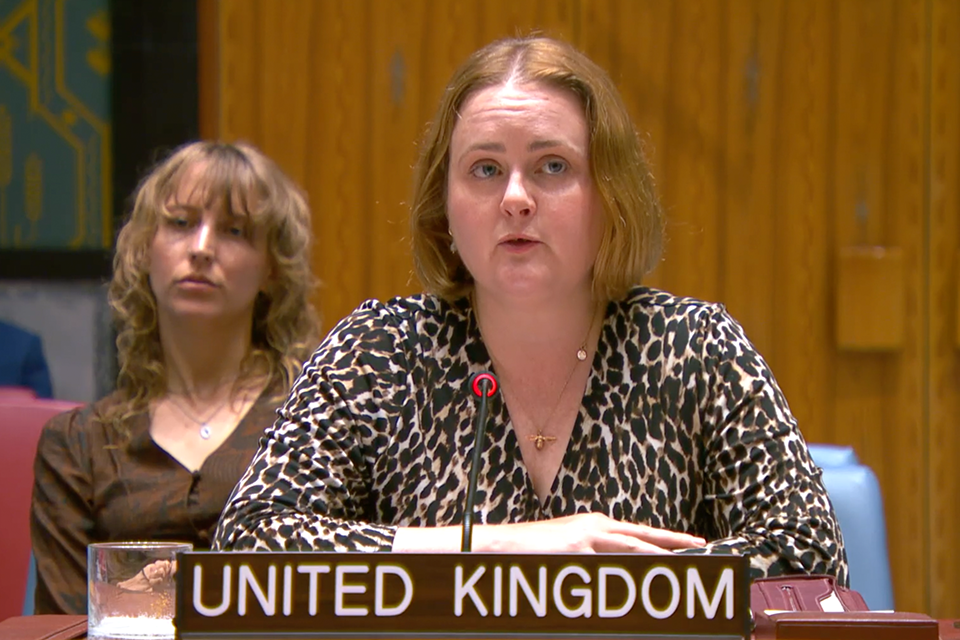The government has served up its new “Good Food Cycle” today (15 July) – a recipe aimed at driving a generational change in the nation’s relationship with food.
The Good Food Cycle identifies ten priority outcomes needed to build a thriving food sector while tackling challenges from rising obesity rates to climate change impacts on production, representing a pivotal milestone in the government’s work to develop a comprehensive food strategy
Key outcomes to create a good food cycle include
-
An improved food environment that supports healthier and more environmentally sustainable food sales
-
Access for all to safe, affordable, healthy, convenient and appealing food options
-
Conditions for the food sector to thrive and grow sustainably, including investment in innovation and productivity, and fairer more transparent supply chains
This fresh approach sets out the government’s vision for a modern food system, that sits at the heart of the government’s Plan for Change, tackling multiple critical challenges at once and helping to put more money back in people’s pockets.
Building stronger, more resilient food supply chains protects Britain from potential disruptions and strengthens our national security. Making sure everyone can afford healthy food drives our health mission by helping people stay well and reducing pressure on the NHS. We’re also working to give children the nutritious start they need to thrive at school and beyond to give every child the best possible start in life, whatever their background.
Minister for Food Security Daniel Zeichner, said
Food security is national security – we need a resilient food system that can weather any storm while ensuring families across the country can access affordable, healthy food.
The Good Food Cycle represents a major milestone. We are actively defining the outcomes we want from our food system to deliver a whole system change that will help the amazing businesses that feed our nation to grow and thrive, which means more jobs and stronger local economies, while making it easier for families to eat and feel better.
This isn’t just about what’s on our plates today, it’s about building a stronger food system for generations to come, supporting economic growth, health and opportunity as part of our Plan for Change.
The ten outcomes have been informed by expert advice from departments across government, the Food Strategy Advisory Board, workshops with interested charities and businesses, as well as members of the public from a Citizen Advisory Council to ensure everyone stands to benefit from a nutritious, sustainable and resilient food system, as part of the Plan for Change.
The Good Food Cycle builds on recent government measures to curb diet-related health problems. Fresh partnerships with big food companies will see them share data on healthy food sales, creating more transparency and a level playing field across the industry.
With two-thirds of adults in England currently overweight or living with obesity and costing the NHS over £11.4 billion annually, the new approach will help make sure healthier choices don’t get squeezed off supermarket shelves by less nutritious options.
Minister for Health Ashley Dalton, said
We want to make sure all families have the option of healthy, high-quality food – not least because it helps tackle the epidemic of obesity, which costs our NHS over £11 billion a year.
The Good Food Cycle will be good for the health of our communities and help us curb the rising tide of cost and demand on the NHS.
This builds on measures in our new 10 Year Health Plan to make the healthy choice the easy choice, including launching a world-first partnership with food manufacturers and retailers.
Evidence shows that children living in poverty are far less likely to have enough nutritious food to eat, with almost 1 in 5 living in food insecurity, affecting their health and attainment at school. The Good Food Cycle will improve access to healthy, affordable food for families and give them the skills and support to cook and eat healthily.
This is a key part of the Government’s wider action to tackle child poverty and support families with the cost of essential goods. It builds on the expansion of Free School Meals to an additional 500,000 children and the rollout of free breakfast clubs for primary school pupils and will form part of the Government’s Child Poverty Strategy published in the Autumn.
Minister for Employment, Alison McGovern, who sits on the Ministerial Food Strategy Group and the Child Poverty Taskforce, said
It’s unacceptable that children in Britain are growing up without access to healthy and affordable food – holding back their learning and development.
Along with making over half a million more children eligible for free school meals and rolling out breakfast clubs to all primary schools, the Good Food Cycle will ensure the next generation are well fed and ready to reach their full potential.
This framework marks an important step in our mission to tackle child poverty, to support families and give all children the very best start in life.
Food Security Minister Daniel Zeichner announced the strategy at Darley Street Market in Bradford as part of their 2025 City of Culture celebrations.
Cities like Bradford are already pioneering the kind of community-focused food initiatives that the Good Food Cycle strategy aims to scale up nationwide.
Bradford’s plans include ensuring primary school pupils get hands-on experience with growing, cooking and eating fresh food – directly supporting the strategy’s goal of giving children the best start in life through better nutrition and food education. The city is also backing venues where citizens of all ages can cook and eat together, creating the kind of inclusive food spaces that help build stronger communities while celebrating local food culture.
Cllr Sarah Ferriby, Bradford Council’s portfolio holder for Healthy People and Places, said
We’re delighted to welcome Minister Zeichner to our new Darley Street Market today to launch the Good Food Cycle.
Having a clear direction on food policy is vital if we are to tackle some of the key issues that affect communities in our district, such as food poverty and obesity while also supporting our food producers and protecting our environment. This is why we worked closely with the district’s Sustainable Food Partnership to launch our own food strategy last year which sets out our plans to support residents with healthy and sustainable food, and to reduce health inequalities.
It is really fitting to launch this important national framework here in Bradford. Our district has a proud food culture and history which we want to build on. Backing our local producers so they can provide quality, nutritious food to local people is a key part of part of our ambition and why we have invested in this new market.
Additional quotes
Dan Bates, Executive Director of Bradford 2025 UK City of Culture, said
At Bradford 2025 UK City of Culture, we’re proud to celebrate our district’s rich cultural identity through its diverse culinary traditions. Whether it’s family recipes passed down through generations, a commemorative biscuit tin containing heritage stories, or even a curry festival; these all offer a unique lens into Bradford’s history, creativity and community spirit. We’re delighted that Bradford has been chosen to launch the [Good Food Cycle] at the new Darley Street Market, full of independent local traders to help showcase the city’s dynamic contemporary culture to the world.
Professor Susan Jebb, Chair of the Food Standards Agency, said
We welcome the ambitions set out in the Good Food Cycle today and support the outcomes it describes.
We continue to work closely with other departments in the delivery of the strategy, playing our part to make it easier for consumers to access food that is healthier and more sustainable.
Sarah Bradbury, CEO at IGD, said
As co-secretariat of the FSAB, we partnered with the Defra team earlier this year to host multi-stakeholder workshops, engaging over 150 organisations across the agri-food supply chain. Their insights have directly shaped the Good Food Cycle’s ambition to build a food system that works for everyone. A powerful example of what can be achieved through collaboration.
Andrew Opie, Director of Food & Sustainability at the BRC, said
Retailers welcome the ambition and direction of the framework. They know customers want more British food, sustainably produced and with clear healthy choices; something we believe this approach can help to deliver.
Kate Nicholls, Chair of UKHospitality, said
Hospitality is a central cog in our food system – serving Britain with great food and drink 24 hours a day, seven days a week. The food supply chain shares the Government’s ambitions to create a healthier, more sustainable food system, and it’s critical the Government works with businesses to do that in a pragmatic and achievable way.
Diverse and vibrant food cultures are part of what makes our communities thrive, and we look forward to working with the Government to develop a food strategy that recognises hospitality’s vital importance to the food system, economy and society.
Dalton Philips, CEO of Greencore plc, said
The Good Food Cycle is a bold and timely step toward a healthier, fairer and more sustainable food system. It sets the right direction for industry, government and communities to work together to drive lasting change.
Tim J Smith CBE, Chairman of Cranswick, said
As we mark the launch of the Good Food Cycle today and as a member of the Food Strategy Advisory Board I would like to commend the government for its progress on establishing a set of priorities which we can all get behind. This matters for everyone. Wherever we live, whoever we are, we’re all connected to the food system. Food matters. The pace at which this work has developed has been remarkable as has the very unusual cross-government working needed to get us to this point where our food system is closer to being healthier, more sustainable and affordable and where that system is fair for all.
Balwinder Dhoot, Director of Sustainability and Growth, The Food and Drink Federation (FDF), said
From the everyday staples found in kitchen cupboards, fridges and freezers, like oats, yoghurts, tins of beans and frozen vegetables, to ready meals, confectionary and new healthier snacks, UK food and drink manufacturers help the nation have a balanced and varied diet, amid busy lifestyles.
We welcome this strategy’s holistic view that considers all of the factors affecting our sector – from creating the right conditions to drive investment in new healthier products, through to removing barriers to trade and ensuring we have the skilled workers we need. We’re pleased to see government acknowledge the importance of our industry to achieving a resilient, sustainable and healthy food system for the UK and look forward to working together to develop this ambitious Food Strategy.
Citizens Advisory Council
Anna Taylor, Executive Director, The Food Foundation, said
The Food Strategy is an opportunity to reset the rules governing the food system so we start winning the fight against diet related disease and unlock progress in delivering our nature and climate targets. The wellbeing of citizens must be at the heart of these changes, with food businesses now being encouraged to sell and promote healthier options. This should also be a signal to investors that British food companies making nutritious foods hold the keys to future growth and productivity. Most importantly it holds the promise of getting our children back on track for long, healthy and fruitful lives.
Sue Pritchard, Chief Executive, Food, Farming and Countryside Commission, said
What’s exciting about this approach is that citizens don’t want to see a strategy gathering dust on a shelf. They are really interested in how it will be delivered – and the difference it will make to their everyday lives. They want to see healthy food, sustainably produced, easily available to everyone everywhere. Citizens tend to cut to the chase. They’re interested in what works, and where it is working already, around the UK and elsewhere in the world. They want to make sure that government focuses on making a real difference – for health, for nature, for climate and for a fairer food system for everyone.
Citizens Advisory Council members
“I think it’s very important to get out and speak to people from different corners of the UK and from all different social aspects and social standings, to understand what the real problems are at the ground level.” – Kevin Robson, Tyne & Wear
“I’d love it if we end up in a place where providing healthy, good food for your family becomes a little less confusing. At the moment, I think lots of citizens do find it confusing. It shouldn’t be a struggle to provide healthy food for a family.” – David Njoku, Berkshire
“I think what I’m really looking for is change. Defra have been really vocal that they want to hear us and they want to centre citizen voices as a key part of their strategy.” – Emmanuela Kumi, London









